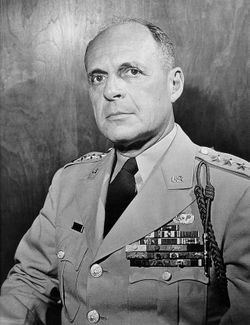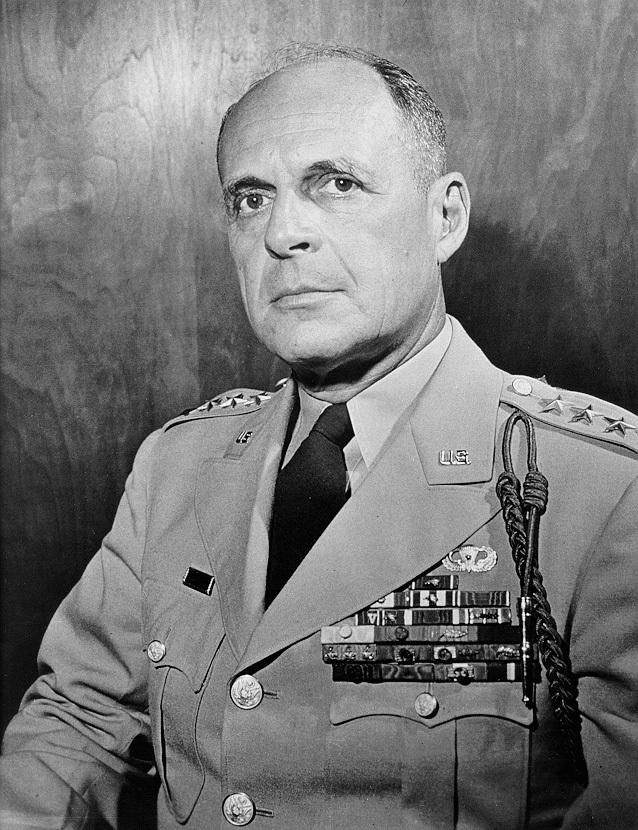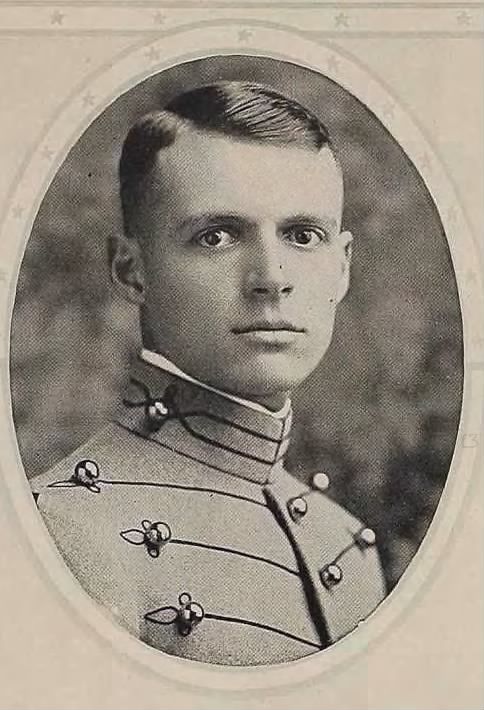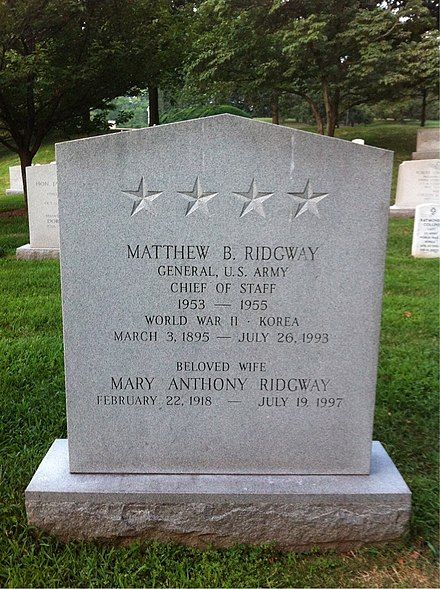United States Army General. In a career that lasted over forty years, General Matthew Bunker Ridgway became the army Chief of Staff after leading U.S. forces in Normandy and United Nations troops in Korea. He was the son of Colonel Thomas Ridgway, an artillery officer and born at Ft Monroe, Virginia where his father was stationed. He grew up on several Army posts where his father was stationed and graduated from English High School in Boston. At West point, he was the manager of the football team. He would return to West Point after graduation to become an instructor in Spanish and manager of the athletic program. A military-diplomatic venture followed. He became a member of a U.S. mission to Nicaragua charged with supervising free elections and was the first of several diplomatic assignments. World War II found him a Brigadier General and in command of the newly activated 82nd Infantry Division. He planned and executed the night airborne operation during the invasion of Sicily then during the Normandy invasion personally jumped into France with his unit . In the late postwar, Ridgway was serving as army Deputy Chief of Staff in the Pentagon when word came that General Walker had been killed. He was named successor and then with General MacArthur's removal by President Truman was named his replacement. In the Korean postwar, he was named Army Chief of Staff but resigned in 1953 short of his original retirement over resentment of plans to downgrade the role of the Army. His long career over, he retired to Pennsylvania where he died at home in Fox Chapel, Pennsylvania, a suburb of Pittsburgh at 98 from cardiac arrest and then interred at Arlington National Cemetery with a simple graveside service. Postscript: In retirement in Pittsburgh, still dissatisfied with the trend of military policy, he constantly spoke out. He called the dismantling of Selective Service and the admission of women into service academies as detrimental. Ridgway was ladened with military decorations during his career but received several post career decorations: In 1986, the Presidential Medal of Freedom and the Congressional Gold Medal in 1991. However, his successes in the army did not carry over to his personal life. He was oft divorced and estranged from daughters by his first marriage and in the ultimate tragedy, a son from his third marriage died in a train accident in 1971.
United States Army General. In a career that lasted over forty years, General Matthew Bunker Ridgway became the army Chief of Staff after leading U.S. forces in Normandy and United Nations troops in Korea. He was the son of Colonel Thomas Ridgway, an artillery officer and born at Ft Monroe, Virginia where his father was stationed. He grew up on several Army posts where his father was stationed and graduated from English High School in Boston. At West point, he was the manager of the football team. He would return to West Point after graduation to become an instructor in Spanish and manager of the athletic program. A military-diplomatic venture followed. He became a member of a U.S. mission to Nicaragua charged with supervising free elections and was the first of several diplomatic assignments. World War II found him a Brigadier General and in command of the newly activated 82nd Infantry Division. He planned and executed the night airborne operation during the invasion of Sicily then during the Normandy invasion personally jumped into France with his unit . In the late postwar, Ridgway was serving as army Deputy Chief of Staff in the Pentagon when word came that General Walker had been killed. He was named successor and then with General MacArthur's removal by President Truman was named his replacement. In the Korean postwar, he was named Army Chief of Staff but resigned in 1953 short of his original retirement over resentment of plans to downgrade the role of the Army. His long career over, he retired to Pennsylvania where he died at home in Fox Chapel, Pennsylvania, a suburb of Pittsburgh at 98 from cardiac arrest and then interred at Arlington National Cemetery with a simple graveside service. Postscript: In retirement in Pittsburgh, still dissatisfied with the trend of military policy, he constantly spoke out. He called the dismantling of Selective Service and the admission of women into service academies as detrimental. Ridgway was ladened with military decorations during his career but received several post career decorations: In 1986, the Presidential Medal of Freedom and the Congressional Gold Medal in 1991. However, his successes in the army did not carry over to his personal life. He was oft divorced and estranged from daughters by his first marriage and in the ultimate tragedy, a son from his third marriage died in a train accident in 1971.
Bio by: Donald Greyfield
Family Members
Advertisement
See more Ridgway memorials in:
Explore more
Sponsored by Ancestry
Advertisement











